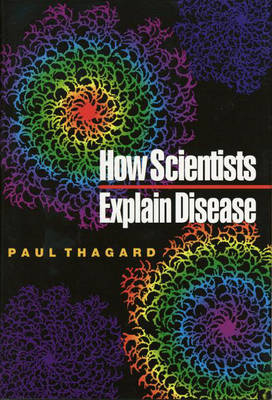
How Scientists Explain Disease
Seiten
1999
Princeton University Press (Verlag)
978-0-691-00261-3 (ISBN)
Princeton University Press (Verlag)
978-0-691-00261-3 (ISBN)
- Titel ist leider vergriffen;
keine Neuauflage - Artikel merken
Ranging through the history of medicine, from the Hippocratic theory of humors to modern explanations of Mad Cow Disease and chronic fatigue syndrome, this book analyzes the development and acceptance of scientific ideas.
Ranging through the history of medicine, from the Hippocratic theory of humours to modern explanations of Mad Cow Disease and chronic fatigue syndrome, this book analyzes the development and acceptance of scientific ideas. At the heart of the book is a case study of the recent shift in medical understanding of peptic ulcers, most of which are now believed to be caused by infection by the bacterium, Heliobacter pylori. Among the questions asked are: how do scientists develop new explanations of disease? How do those explanations become accepted as true? How does medical diagnosis change when physicians are confronted with new scientific evidence? The book challenges both traditional philosophy of science, which has viewed science as largely a matter of logic, and contemporary science studies that view science as largely a matter of power.
Ranging through the history of medicine, from the Hippocratic theory of humours to modern explanations of Mad Cow Disease and chronic fatigue syndrome, this book analyzes the development and acceptance of scientific ideas. At the heart of the book is a case study of the recent shift in medical understanding of peptic ulcers, most of which are now believed to be caused by infection by the bacterium, Heliobacter pylori. Among the questions asked are: how do scientists develop new explanations of disease? How do those explanations become accepted as true? How does medical diagnosis change when physicians are confronted with new scientific evidence? The book challenges both traditional philosophy of science, which has viewed science as largely a matter of logic, and contemporary science studies that view science as largely a matter of power.
Paul Thagard is Professor of Philosophy and Director of the Cognitive Science Program at the University of Waterloo (Canada). His previous books include Conceptual Revolutions (Princeton) and Mind: Introduction to Cognitive Science (MIT Press).
| Erscheint lt. Verlag | 26.4.1999 |
|---|---|
| Zusatzinfo | 8 tables 33 line illus. 1 halftone |
| Verlagsort | New Jersey |
| Sprache | englisch |
| Maße | 152 x 229 mm |
| Gewicht | 567 g |
| Themenwelt | Medizin / Pharmazie ► Medizinische Fachgebiete ► Mikrobiologie / Infektologie / Reisemedizin |
| Studium ► Querschnittsbereiche ► Infektiologie / Immunologie | |
| Naturwissenschaften | |
| ISBN-10 | 0-691-00261-4 / 0691002614 |
| ISBN-13 | 978-0-691-00261-3 / 9780691002613 |
| Zustand | Neuware |
| Haben Sie eine Frage zum Produkt? |
Mehr entdecken
aus dem Bereich
aus dem Bereich
Antibiotika, Virostatika, Antimykotika, Antiparasitäre Wirkstoffe
Buch | Hardcover (2024)
Thieme (Verlag)
165,00 €


